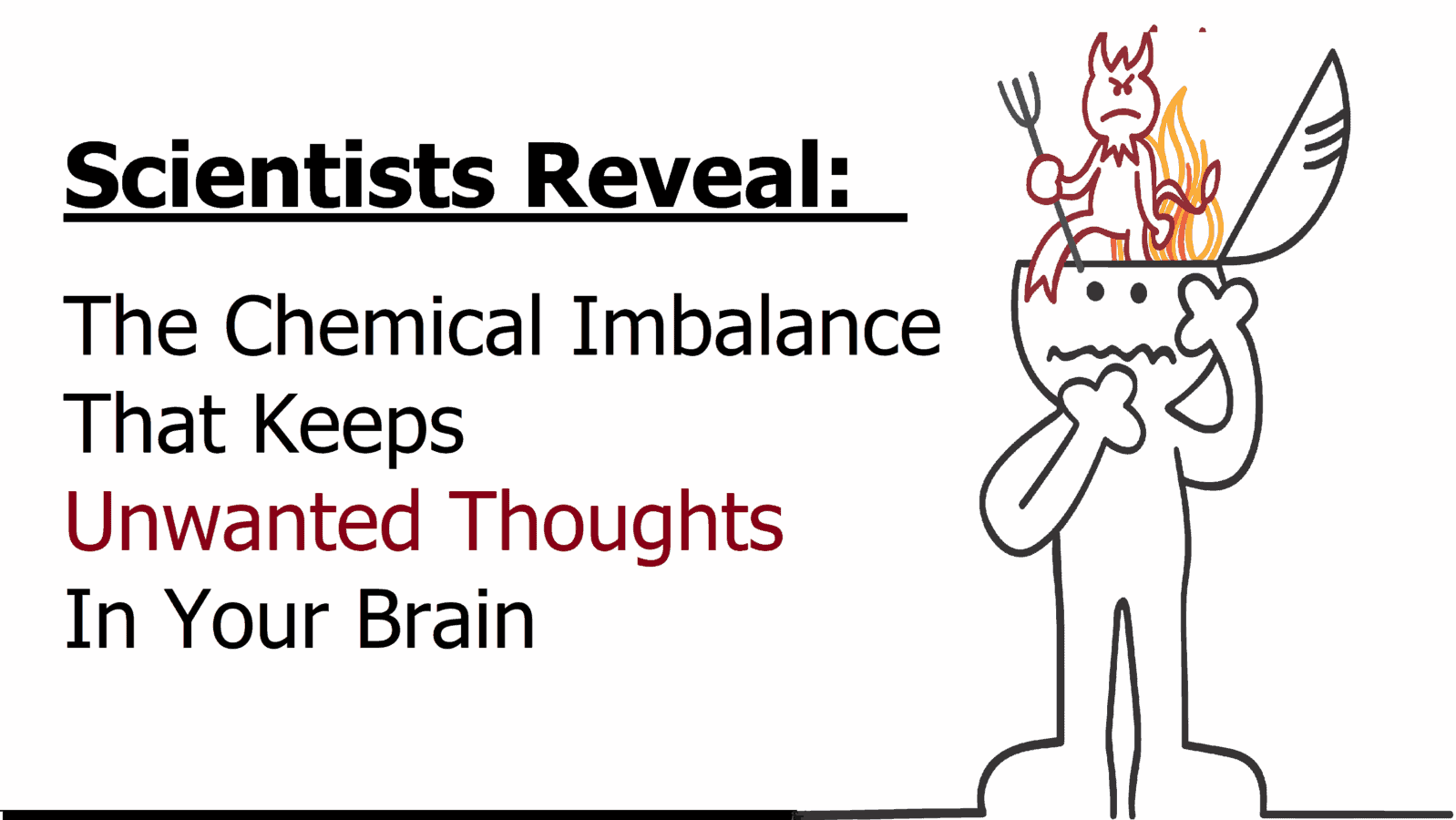GABA is the acronym for (get ready!) Gamma-Aminobutyric Acid. The human brain –in fact, the brain of all mammals – requires a delicate balance of “upper” and “downer” chemicals, called neurotransmitters.
GABA fits in the “downer” (inhibitory) class and is crucial to brain function. GABA is the major inhibitory transmitter in the brain. Glutamate, which is a metabolic precursor of GABA, is the main “upper” (excitatory) chemical.
Scientists at the University of Cambridge observe that GABA not only “balances out” brain chemicals but is critical for preventing unwanted (intrusive) thoughts.
Further, the research helps explain why individuals with certain mental health conditions – e.g., anxiety, depression, PTSD, and schizophrenia – often contend with continuously invasive thoughts.
The Prefrontal Cortex
The Prefrontal Cortex, or PFC, is the “executive function” area of the brain. The PFC helps the brain plan complex behaviors, attention, critical thinking, solving problems, self-awareness, decision-making, social cognition, and working memory.
The PFC can also be thought of as the brain’s “control center,” regulating other brain regions such as the motor cortex and hippocampus. It wasn’t until recently that an area of the PFC also played an essential role in stopping unwanted thoughts.
Dr. Michael Anderson, a neuroscience professor – along with his team of researchers at the University of Cambridge – discovered this chemical within the hippocampal area of the brain responsible for memory formation.
The Study: Methods
Anderson’s research, published in the journal Nature Communications, uses functional magnetic resonance imaging (fMRI) and magnetic resonance spectroscopy. fMRI images measure and map brain activity; while magnetic resonance spectroscopy focuses on an individual’s brain chemistry.
Using both technologies, researchers observed the brains of participants as they attempted to suppress their thoughts on a given task.
Findings
“GABA is the ‘downer’ neurotransmitter that counters glutamate (upper), as the two mediate brain activation in a Ying: Yang manner. Highly important in the brain, oral ingestion of GABA is complex due to its difficulty crossing the blood-brain barrier.” ~ Examine.com
Spectroscopy feedback showed that “the ability to inhibit unwanted thoughts relies on a neurotransmitter – a chemical within the brain that allows messages to pass between cells – known as GABA.”
The following is a summation of Anderson’s findings, point-by-point:
– GABA concentrations within the hippocampus, the brain area responsible for memory formation, determines a person’s ability to inhibit unwanted thoughts.
– Suppressing unwanted thoughts is dependent “as much” on PFC activity as the hippocampus. (This bucks the trend, as most neuroscientists focus on the PFC for such roles.)
– People with lower concentrations of GABA within the hippocampus “were less able to suppress (activity) by the prefrontal cortex,” suppressing thought at a much lower rate.
– The study’s discoveries may lead to additional insights – and potential treatment options – for schizophrenia. (Schizophrenics display hyperactivity in the hippocampus, which is thought to be responsible for hallucinations and other intrusive symptoms.)
The importance of “thought control”
The ability to control thoughts is crucial to mental and physical health, says Professor Anderson:
“When this capacity breaks down, it causes some of the most debilitating symptoms of psychiatric diseases: intrusive memories, images, hallucinations, ruminations, and pathological and consistent worries. These are all key symptoms of mental illnesses such as PTSD, schizophrenia, depression, and anxiety.”
In many ways, the ability to halt negative thinking is akin to physical restraint. “We wouldn’t be able to survive without controlling our actions,” says Anderson. “We have lots of quick reflexes that are often useful, but we need to control these actions and stop them from happening.”
Anderson assumes that us humans also have a “similar mechanism” for stopping unwanted thoughts.
Boosting GABA levels
As Anderson’s research is recent, potential treatments have not yet been examined. However, it’s clear that correcting a GABA deficiency – a neurochemical imbalance – can help suppress unwanted thoughts.
Increasing the levels of GABA in the brain may help those dealing with invasive thoughts. Fortunately, there are plenty of natural ways to do this.
Here are a few known GABA boosters:
- Exercise: Increasing your heart rate has been shown to boost your GABA levels. Brisk walking or running three to four times per week, may increase you GABA levels.
- Meditation: Quiet your busy mind and focus on deep breath–it may help increase GABA levels. Try deep breathing for 10 to 15 minutes to start.
- Yoga: Maintaining focus on the present moment may help boost GABA levels. Additionally, yoga focuses on deep breathing, which helps to reduce feelings of stress and anxiety.
- Proper Diet: Stay away from soft drinks, MSG, and processed foods as much as possible. Instead, eat foods that are rich in glutamic acid, a building block of GABA.
Foods high in glutamic acid include:
- Almonds and walnuts
- Bananas
- Beef Liver
- Broccoli
- Brown rice
- Halibut
- Lentils
- Oats
- Citrus fruits
- Potato
- Rice Bran
- Spinach


















